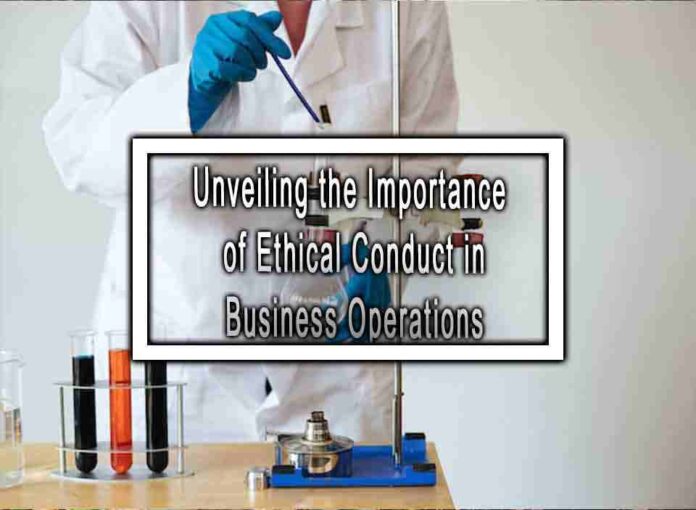Ethical conduct in business operations is of paramount importance for various reasons. It lays the foundation for building trust, fostering positive relationships, and ensuring sustainable growth. Here are some key reasons why ethical conduct is essential in business:
1. Trust and Reputation:
Ethical behavior earns the trust of customers, employees, investors, and other stakeholders. A company with a strong reputation for ethical conduct is more likely to attract loyal customers and retain talented employees.

2. Customer Loyalty:
Ethical business practices demonstrate a commitment to customer satisfaction and fair treatment. Satisfied customers are more likely to remain loyal and recommend the company to others.
3. Employee Morale and Retention:
Ethical behavior creates a positive work environment where employees feel valued and respected. This boosts morale, fosters loyalty, and reduces turnover rates.
4. Compliance with Laws and Regulations:
Ethical conduct ensures that a company complies with laws and regulations governing its industry. This minimizes legal risks and potential fines or penalties.
5. Long-Term Sustainability:
Businesses that prioritize ethical behavior tend to focus on long-term sustainability rather than short-term gains. Sustainable practices contribute to the company’s resilience and longevity.
6. Attracting Investment:
Ethical companies are more likely to attract responsible investors who prioritize social and environmental considerations.
7. Positive Impact on Society:
Ethical businesses contribute positively to the communities in which they operate. They support local development, minimize environmental impact, and engage in socially responsible initiatives.
Ultimately, ethical conduct in business is not just a legal or moral obligation but a strategic advantage. Companies that prioritize ethical behavior are more likely to thrive in the long term, gain a competitive edge, and contribute positively to society. Ethical decision-making should be ingrained in the company’s culture and embedded in every aspect of its operations, from leadership practices to interactions with customers and suppliers.










